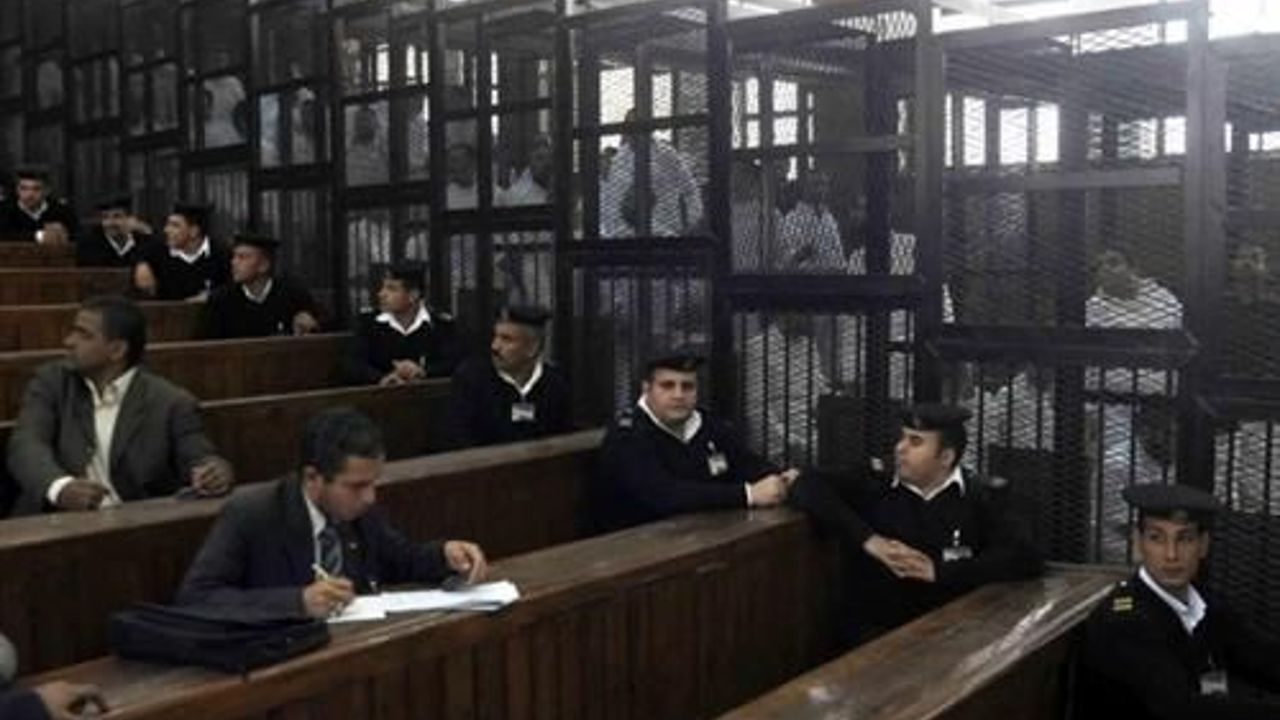Brotherhood leader Al-Falahgi dies in Egypt prison
World |
Al-Falahgi was arrested on violence-related charges in August of 2013

Font Size:
A leading Muslim Brotherhood member died on Monday morning inside a prison hospital in northern Egypt, a pro-Brotherhood website has reported.
Mohamed al-Falahgi, a former lawmaker and member of the Brotherhood's Freedom and Justice Party, died in Gamasa prison in Egypt's Damietta province, according to the Nafezat Masr website.
A lawyer for detained Brotherhood members in Damietta told the website that, prior to his death, al-Falahgi had been taken to a prison hospital with a gallbladder inflammation and kidney stones.
Al-Falahgi was arrested on violence-related charges in August of 2013. He was referred to Gamasa prison in October of the same year, according to the lawyer.
Al-Falahgi had been serving out a three-year jail term for involvement in the torching of a government building in Damietta. However, the verdict had been subsequently annulled and a retrial had been scheduled to begin on Tuesday.
Al-Falahgi was the second Brotherhood member to die in prison this month. On May 14, senior Brotherhood member Farid Ismail died in prison of health complications.
Ahmed Mafrah, who heads the Egypt desk at the Al-Karama foundation, a Geneva-based rights watchdog, told Anadolu Agency that al-Falahgi's death brought the total number of deaths inside Egyptian prisons and detention facilities to 265 since the ouster of Mohamed Morsi - Egypts first elected president - by the army in mid-2013.
Egypt's Muslim Brotherhood, of which Morsi had been a leading member, holds the Egyptian authorities responsible for the deaths of its detained members, citing "negligence" by prison officials.
The Egyptian authorities, for their part, insist that all its prison facilities are operated "in line with international human rights treaties" on the rights of prisoners.
Anadolu Agency
Mohamed al-Falahgi, a former lawmaker and member of the Brotherhood's Freedom and Justice Party, died in Gamasa prison in Egypt's Damietta province, according to the Nafezat Masr website.
A lawyer for detained Brotherhood members in Damietta told the website that, prior to his death, al-Falahgi had been taken to a prison hospital with a gallbladder inflammation and kidney stones.
Al-Falahgi was arrested on violence-related charges in August of 2013. He was referred to Gamasa prison in October of the same year, according to the lawyer.
Al-Falahgi had been serving out a three-year jail term for involvement in the torching of a government building in Damietta. However, the verdict had been subsequently annulled and a retrial had been scheduled to begin on Tuesday.
Al-Falahgi was the second Brotherhood member to die in prison this month. On May 14, senior Brotherhood member Farid Ismail died in prison of health complications.
Ahmed Mafrah, who heads the Egypt desk at the Al-Karama foundation, a Geneva-based rights watchdog, told Anadolu Agency that al-Falahgi's death brought the total number of deaths inside Egyptian prisons and detention facilities to 265 since the ouster of Mohamed Morsi - Egypts first elected president - by the army in mid-2013.
Egypt's Muslim Brotherhood, of which Morsi had been a leading member, holds the Egyptian authorities responsible for the deaths of its detained members, citing "negligence" by prison officials.
The Egyptian authorities, for their part, insist that all its prison facilities are operated "in line with international human rights treaties" on the rights of prisoners.
Anadolu Agency
Similar News
Video News

WORLD
26 Mart 2024 - 11:18
Photo News






